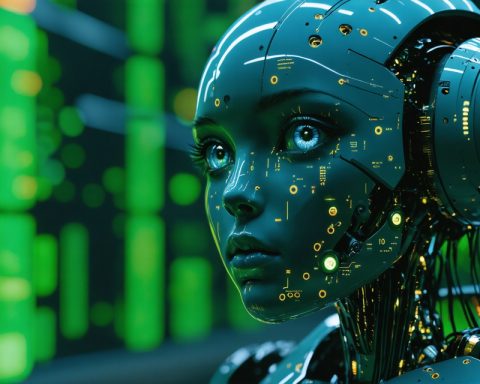The rapid advancements in artificial intelligence (AI) have sparked curiosity about the skills required to create these intelligent systems. This begs the question: does AI necessitate a command of coding? The answer is more nuanced than a simple yes or no.
Coding is fundamental to AI development. Most AI systems require programming to instruct computers on how to process data and make decisions. Various coding languages, such as Python, R, and Java, play crucial roles in the development of machine learning models and AI algorithms. Understanding these languages allows developers to build and refine models effectively, ensuring they deliver accurate and efficient results.
However, it’s worth noting that coding is not the only path to involvement in AI. With the rise of tools like Microsoft’s Azure Machine Learning Studio and Google’s AutoML, non-coders can experiment with AI models using user-friendly interfaces. These platforms aim to democratize AI by allowing users to build, train, and deploy models without extensive programming knowledge. They offer pre-built algorithms and drag-and-drop functionalities, making the technology more accessible.
Though these tools offer a way for individuals without coding expertise to engage with AI, deep understanding of AI principles still holds significant value. Even when using simplified platforms, knowing how algorithms function and understanding model limitations are crucial for effective application and innovation.
In conclusion, while coding is undoubtedly a core skill for traditional AI development, emerging tools and platforms create opportunities for non-coders to participate in the AI revolution. Yet, whether coding-savvy or not, a thorough understanding of AI concepts remains indispensable.
Unlocking AI’s Potential: Can Non-Coders Lead the Next Revolution?
As artificial intelligence continues to permeate daily life, its impact on communities and industries is significant. But who stands to benefit the most from AI’s evolution?
Empowering Underserved Communities
The democratization of AI opens doors for communities previously excluded from technological advancements. By enabling individuals with limited coding experience to build AI models, there is potential for grassroots innovation. For example, local communities can analyze environmental data to tackle issues like air pollution or manage resources more efficiently. Additionally, non-profit organizations can leverage these tools to develop AI-driven solutions tailored to social challenges.
Fostering Economic Growth
Countries that embrace these AI tools without needing expansive training programs may experience faster economic growth. As businesses face fewer barriers to innovation, they can quickly adapt AI technologies to streamline operations and enhance productivity.
Controversial Questions: Who Holds the Power?
Does the democratization of AI inadvertently consolidate power among tech giants providing the platforms? With companies like Microsoft and Google spearheading user-friendly AI solutions, a question arises about potential monopolistic behaviors. Will these corporations dictate which models are accessible, and thus influence innovation trajectories?
Does Artificial Intelligence Require Coding?
While platforms have decreased the need for traditional coding skills, understanding AI principles remains essential. Non-coders must still grasp fundamental AI concepts to maximize efficiency and prevent misuse.
For those intrigued by AI and its broader impacts, explore domains like the Wired and MIT Technology Review for comprehensive insights into evolving technologies shaping our world.








